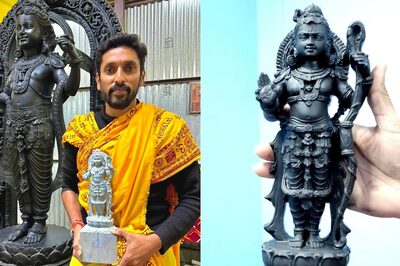
views
Trial courts cannot impose punishment of “imprisonment till the last breath” unless the case qualifies all three tests, namely, the crime test, criminal test and the rarest of the rare test, laid down by the Top Court in Dharam Deo Yadav v. State of UP, (2014) 5 SCC 509, a division bench of the Karnataka High Court comprising Justice K. Somashekar and Justice Rajesh Rai K. said, during a murder case trial recently.
The Court of Additional District and Sessions Judge, Hassan, convicted the appellants under sections 302, 120(B), 201 of the Indian Penal Code, 1860.
The main accused was directed to undergo rigorous imprisonment for a period of 2 years for the offence punishable under Section 120(b), in addition to payment of fine amounting to Rs. 10,000. He was also awarded imprisonment for life, that is “till his last breath”, for the offence punishable under Section 302, in addition to payment of fine amounting to Rs. 50,000.
It was contended by the appellants that the decision of the Sessions Court was entirely based upon circumstantial evidence and that the prosecution failed to establish homicidal death of the deceased. The doctor, one of the witnesses brought by the prosecution, although deposed that the cause of death was a head injury and asphyxia, much evidentiary value could not be attached to it as the body was totally decomposed and only bones were recovered by exhumation proceedings, the appellants submitted.
“The Hon’ble Apex Court in the case of Dharma Deo Yadav laid down three tests, namely, Crime test, Criminal test and Rarest of rare test. So for the present case is concerned, both the crime and criminal tests have been satisfied against the accused, but rarest rare test is concerned, the prosecution failed to prove the same by leading cogent evidence that the crime was committed in a barbaric manner and hence the instant case would not fall under the category of rarest of the rare case. As such, the punishment awarded by the trial Court by imposing the imprisonment to accused No.1 till his last breath has to be modified to life imprisonment instead of last breath of his life”, the bench observed.
“The main accused had pin pointed the exact place which was to be dug up. He also made an oral statement to that effect”, the Court further noted.
The main accused and the co-accused were in an illicit relationship and allegedly conspired the death of D.R. Kumar, the deceased husband of the co-accused.

















Comments
0 comment